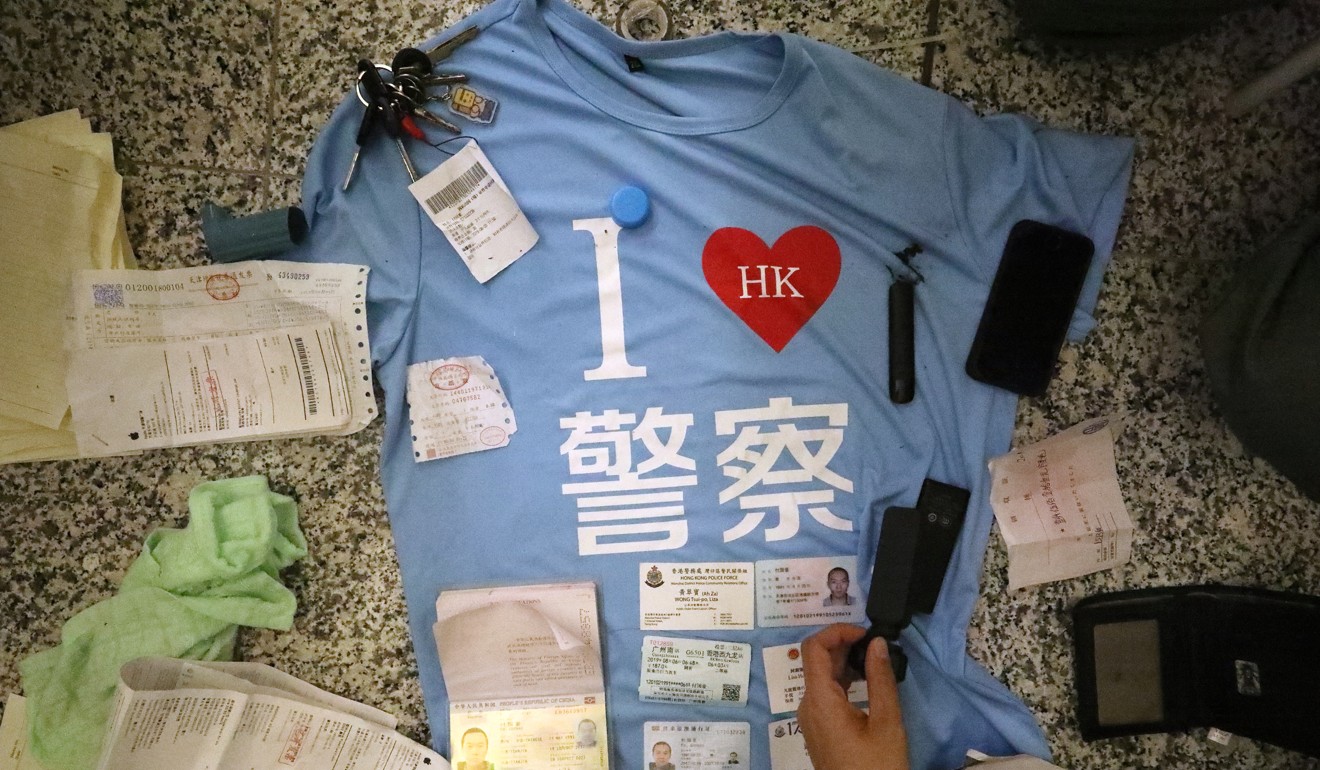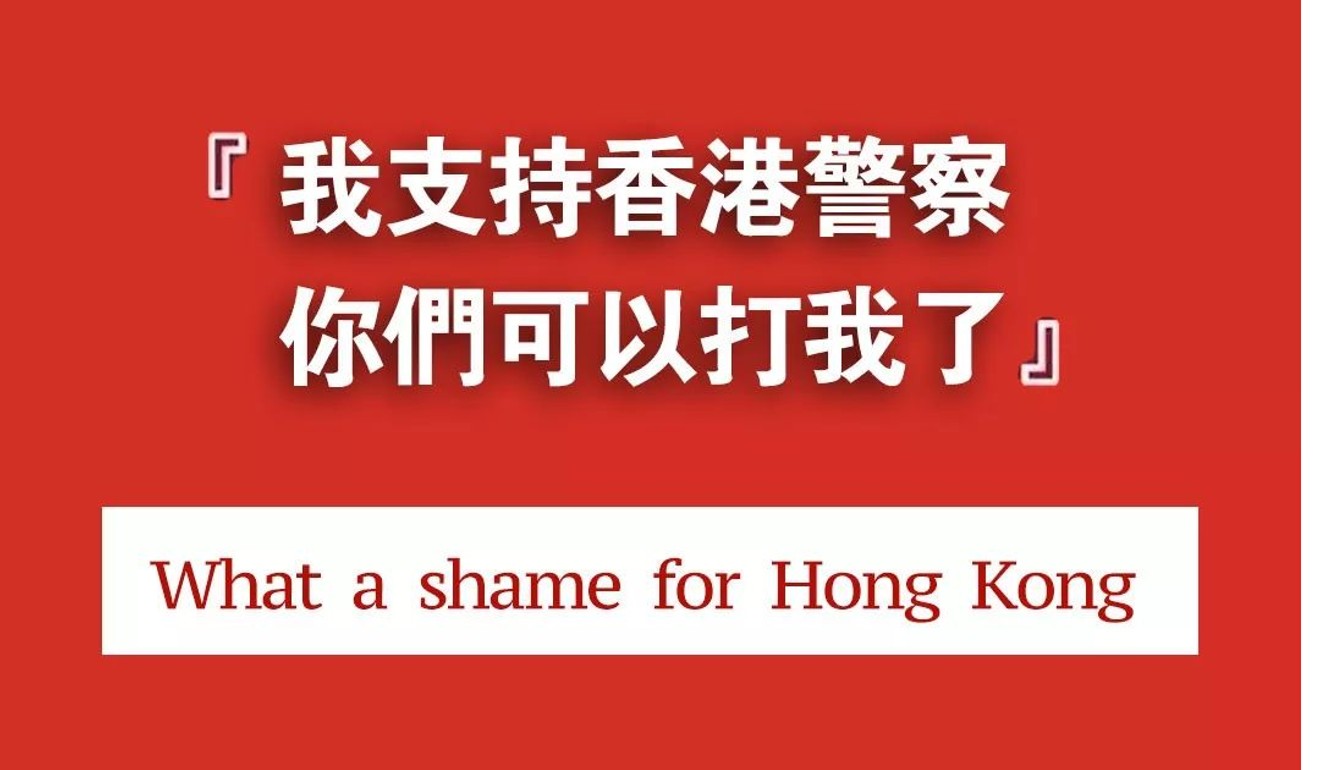
Hong Kong airport attacks trigger nationalist frenzy in mainland China
- Tuesday night’s attacks prompt widespread outrage on social media
- State media praises the two injured men, but some commentators criticise the central government over its perceived failure to take tougher action
The attacks on two mainland Chinese men at Hong Kong airport on Tuesday evening by anti-government protesters have set off a firestorm of criticism on the mainland.
The two men – Fu Guohao, who was later identified as a reporter from the state-owned Global Times tabloid, and Xu Jinyang – were mobbed and assaulted by Hong Kong protesters, who suspected they were undercover agents.
News of the attacks spread like wildfire on the mainland, where public sentiment towards Hong Kong has already hardened over the past weeks following a state-led propaganda campaign to discredit the protests.
Within hours of the attacks, state media started posting condemnations of the protesters and sought to rally support for the two victims.
Fu, who was rescued by Hong Kong police and later treated in hospital, was hailed by some internet users as a national hero and applauded for standing up to his attackers.
Many websites shared a video clip of the chaos on Tuesday night when Fu was surrounded by black-clad protesters who tied his hands.
Fu told the protesters in English that he was a tourist and also said in Mandarin: “I support Hong Kong police. You can beat me now.”
What to know about court’s order to ban protesters from Hong Kong airport
He did not show any press credentials and was found with a T-shirt in his backpack featuring the phrase “I love HK police” – a major slogan from pro-government rallies in recent weeks.
Hu Xijin, Global Times’ editor-in-chief, on Wednesday condemned “the illegal detention and serious acts of violence”, adding that he saluted Fu for “not surrendering to the rioters” on behalf of the newspaper.
Beijing has made it clear that any deployment of military forces to Hong Kong to quell the unrest would be in accordance with the law
People’s Daily, the Communist Party’s mouthpiece, praised Fu for his “manliness”.
“Let’s remember Fu Guohao and his awe-inspiring righteousness while being held,” it said in a widely shared post on the microblogging site Weibo. “This is what a dignified and upright Chinese should be like.”
Hong Kong airport battles to return to normal after protest chaos
On Wednesday, Beijing’s Liaison Office in Hong Kong sent a deputy director to visit Fu in Shenzhen, relaying the message that “the attackers at the airport don’t represent Hong Kong people”.
In a report released by the Liaison office, Fu was quoted as saying: “I always love Hong Kong ... I am afraid that all these reports on television about what these extremists did to me would spread to the mainland, leading to confrontation between the mainland and Hong Kong.”

But some social media users, whose nationalist anger has been whipped up by an intensive propaganda campaign to discredit the pro-democracy movement, also expressed anger towards the central government for failing to resolve the crisis in Hong Kong and criticised its apparent reluctance to take tougher action.
“How many Chinese will have sleepless nights? Our state power should take action now!” read a Weibo comment.
Hong Kong airport protesters apologise for disruption, ‘overreaction’
“If no further measures are taken, both the central and Hong Kong governments will lose people’s hearts! Too much restraint amounts to connivance,” said another.
Beijing has made it clear that any deployment of military forces to Hong Kong to quell the unrest would be in accordance with the law.
It has also flexed its muscles by staging large-scale anti-riot drills across the border in Shenzhen, but analysts have said that deploying the People’s Liberation Army remains an unlikely last resort, given the high political costs for Beijing.
In a sign of an attempt to pacify the boiling nationalist rage, the carefully curated Weibo comment sections for People’s Daily and state broadcaster CCTV were dominated by appeals for calm and – more importantly – for the public to have faith in the central government’s ability to handle the situation.
“Everyone please calm down and be rational. The central [government] must have its own plans that we may not know. We should keep cool and support the [government] resolutely,” read one such post. “Please don’t get emotional, and certainly not exert any pressure on the [government].”
But some remained unconvinced. “It is only because the central [government] has kept holding off from taking action that we have come to a situation like this today. How can one trust [the central government]?” a comment read.

Fang Kecheng, an assistant professor at the Chinese University of Hong Kong, said nationalism has always been a double-edged sword for the party-state.
“In the pre-social media era, the angry nationalists would march in the streets to protest. Such movements are deemed very dangerous by the party-state and need to be suppressed,” said Fang, who has studied Chinese internet nationalism.
Donald Trump comments on ‘tricky’ Hong Kong situation
“In the era of social media, angry netizens’ call for government intervention could also undermine the legitimacy of the party-state. It shows the limitations and risks of the nationalism campaign.”
Thousands of mostly young, masked protesters turned up the intensity of their previously peaceful sit-ins at Hong Kong airport this week to put pressure on the city government, which has so far refused to make any concessions.
Many were outraged by police officers’ increased use of force on Sunday, citing a serious eye injury suffered by a young woman and arrests made by undercover officers dressed as protesters.
While scuffles and loud arguments broke out as demonstrators blocked travellers – including mainlanders – from boarding their flights in the afternoon, it was the violent turn of events in the evening that ignited the uproar on the mainland.
Fu and Xu both were discharged from hospital on Wednesday.

“In Hong Kong, I complied with everything a citizen should do. I didn’t do anything unlawful or behave in a way that would stir up controversy,” Fu said as dozens of supporters gave him a hero’s welcome as he left hospital. “I think I should not be treated violently.”
The All-China Journalists’ Association, the mainland’s official journalists’ group, condemned the violence and called on the authorities to deal severely with the attackers.
Additional reporting by Elizabeth Cheung

